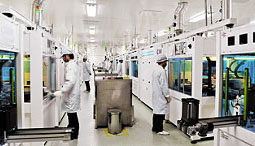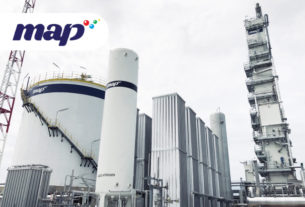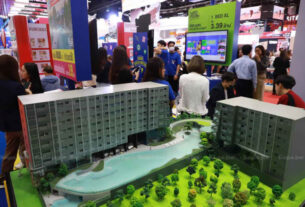Zhongli Talesun Solar (Changshu, China) has begun construction on a new factory for the manufacture of solar cells and PV modules in Thailand.
The production plant is being built at the Thai-China Industrial Park in Rayong. The city lies some 200 kilometers from Bangkok, on the Gulf of Thailand. The annual production capacity of the new plant is an initial 500 megawatt for both solar cells and modules.
The company will construct a fully automated PV production line in this Thai facility, following the model, which has served in China
In addition, Zhongli Talesun Solar plans the construction of photovoltaic power stations with over one gigawatt capacity by 2018.
The ground-breaking ceremony in Rayong, the capital of the province which shares its name, was attended by Wang Baixing, Chairman of Zhongli Sci-Tech Group, and Chitchai Wannasathit, the former Deputy Prime Minister of Thailand.
The company will construct a fully automated production line in this Thai facility, following the model, which has served it with such success in China. Zhongli Talesun Solar has set October 2015 as the start date for production. Simultaneously, the company is investing in the project development of solar parks in the country: in total some 15 billion Renminbi (RMB) are to flow into power plants in Thailand over the next three years. The target is to supply an additional gigawatt of capacity to the grid.
Thailand – a boom market for sustainable energy production
“Courage breeds success. This is Zhongli Group’s experience in the cable manufacturing sector and the motivation behind the construction of the plant in Thailand. The decision also reflects our own successes in overseas energy production,” says Wang Baixing, Executive Board Member at Zhongli Talesun.
“Both the Thai Government and the banks have signaled their support for the project. We are extremely happy that the cooperation with the local authorities has been so outstanding.”
Besides the successful cooperation, the Thai energy market provides a compelling argument for undertaking activities on the ground: The electricity consumption in the country is rising annually by between four and five percent and the government is increasingly promoting the use of renewable energy and greater self-sufficiency – 2012 saw 59 percent of primary energy being imported from abroad.
In the years between 2012 and 2030 the electricity production capacity is targeted to rise by around 55 gigawatts; the share of renewables is set to increase to 25 percent by 2021, whereby photovoltaics will be second in the energy source rankings, behind biomass and ahead of wind power. The focus is on rooftop installations, for which a state incentive program exists with several tranches up to a total of 800 megawatts; a further funding initiative supports the construction of communal installations up to a capacity of one megawatt.
The World Bank ranked this South East Asian Kingdom at position 18 in its ‘Doing-Business-Report 2014’, reflecting the positive investment climate in the country. Economic growth in 2013 was at three percent.
“Such attractive market conditions will help us to reach our target of 1.2 gigawatt for PV project planning of grid-connected power plants for the year 2015,” adds Wang Baixing.
Source: http://www.solarserver.com/solar-magazine/solar-news/current/2015/kw07/zhongli-talesun-to-begin-solar-cell-and-pv-module-production-in-thailand.html



